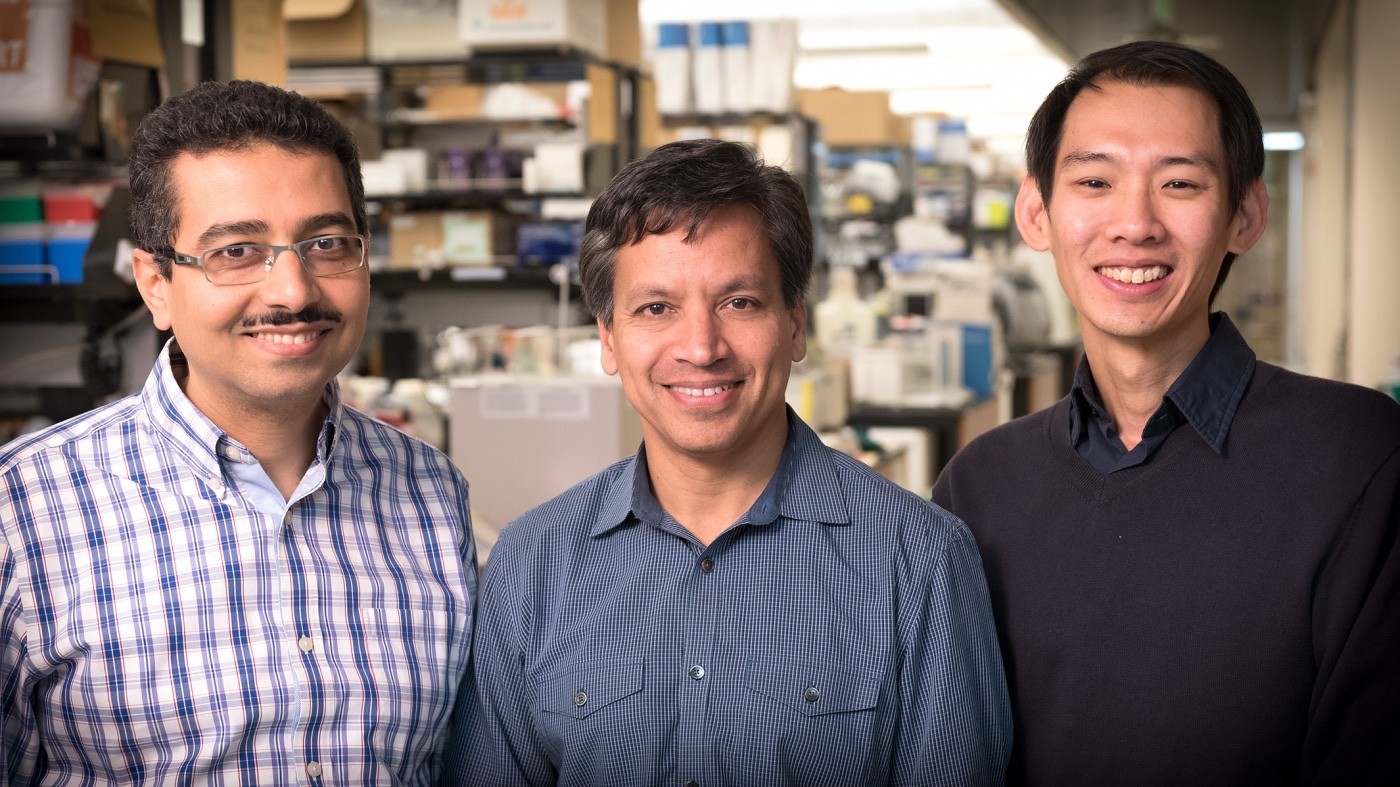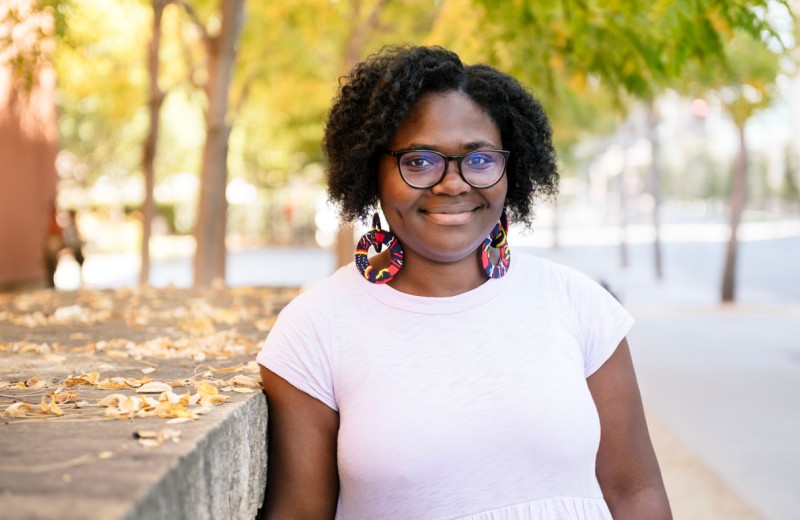Gladstone NOW: The Campaign Join Us on the Journey✕

Two scientists in the laboratory of Deepak Srivastava (C)—Tamer Mohamed (L) and Yen-Sin Ang (R)—were finalists for the American Heart Association’s Louis N. and Arnold M. Katz Prize. Ang ultimately won the prize for his research on the GATA4 protein, which controls heart formation and function. [Photo: Chris Goodfellow, Gladstone Institutes]
Yen-Sin Ang, PhD, a research scientist at the Gladstone Institutes, was awarded the Louis N. and Arnold M. Katz Basic Research Prize, the most prominent young investigator award bestowed by the American Heart Association.
Ang, who works in the laboratory of Deepak Srivastava, MD, won for his work on GATA4—a protein that controls heart formation and function. By studying heart cells from a family with a mutation in the GATA4 gene, Ang learned more about how this protein contributes to congenital heart disease, heart formation, and healthy heart function.
“I am honored to receive this award from the American Heart Association, and I am grateful to Deepak for his guidance and mentorship on my research,” said Ang. “I am also thankful for the family who donated their cells to our research. I hope that the lessons we learned about cardiac gene networks from their cells will help us develop new treatments for heart disease.”
The Louis N. and Arnold M. Katz Prize recognizes innovative and groundbreaking cardiovascular research by young investigators in biochemical, cellular, molecular, and genetic science. In August, five finalists were selected from the pool of international applicants. Each finalist presented their research at the American Heart Association annual meeting in November, and a panel of judges selected one winner based on the presentations.
Ang faced steep competition for the prize, including his colleague in the Srivastava laboratory, former Research Scientist Tamer Mohamed, PhD. In his work, Mohamed identified two chemicals that improve scientists’ ability to transform scar tissue in a heart into healthy, beating heart muscle. This development brings direct cardiac cell reprogramming one step closer to patients.
“Yen-Sin and Tamer both gave outstanding talks, and I am extremely proud of both of them,” said Srivastava, who is the director of the Gladstone Institute of Cardiovascular Disease and a pediatric cardiologist at the University of California, San Francisco. “Their research provides us with critical insights into the basic biology of the heart and makes important progress towards new and better treatments for heart disease.”
Another former Srivastava lab member, Li Qian, PhD, won the Katz Prize in 2011, and Srivastava himself was a finalist in 1996.
“It is a testament to the caliber of science at Gladstone that two out of the five finalists for the award were members of Deepak’s laboratory,” said Gladstone President R. Sanders “Sandy” Williams, MD. “Yen-Sin and Tamer’s early success is surely a sign of great things to come."
Support Discovery Science
Your gift to Gladstone will allow our researchers to pursue high-quality science, focus on disease, and train the next generation of scientific thought leaders.
Matters of the Heart: A Conversation with Gladstone’s Benoit Bruneau
Matters of the Heart: A Conversation with Gladstone’s Benoit Bruneau
Bruneau, director of the Gladstone Institute of Cardiovascular Disease, shares exciting recent advances in heart research and talks about the impact of predictive AI.
Gladstone Experts Heart Failure Cardiovascular Disease Alexanian Lab Bruneau Lab Pollard Lab Theodoris Lab AIGladstone Researchers Discover How Chronic Inflammation Worsens Heart Failure
Gladstone Researchers Discover How Chronic Inflammation Worsens Heart Failure
The new findings have implications for developing immune therapies that target heart disease and chronic conditions in other organs.
News Release Research (Publication) Heart Failure Cardiovascular Disease Alexanian Lab Srivastava LabGladstone’s Catherine Tcheandjieu Gueliatcha Named an ‘Emerging Leader’ by National Academy of Medicine
Gladstone’s Catherine Tcheandjieu Gueliatcha Named an ‘Emerging Leader’ by National Academy of Medicine
Tcheandjieu is one of 10 scholars nationwide selected as an emerging leader who's shaping the future of health and medicine.
Awards News Release Heart Failure Data Science and Biotechnology Tcheandjieu Lab AI Big Data



